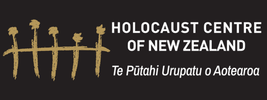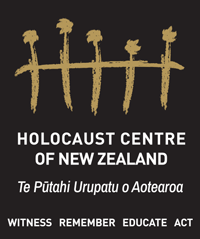TEACHING THE HOLOCAUST AND GENOCIDE - SENIOR HISTORY UNIT
Contexts of study and comparison: Yugoslavian Civil War, Rwanda, Cambodia, the Holocaust (or Shoah)
OVERVIEW
Why relate the Holocaust to other genocides?
An essential element that pervades all genocide is the idea of crimes against humanity. The NZC (“New Zealand Curriculum”) asks educators and students to inquire into significant events and to better understand our contemporary world. To do so, requires examining the many “branches” or facets of our civilisation (especially democracy), by understanding genocide and the Holocaust in depth.
Students should be exposed to accurate historical truth (including terminology based on best practice), and guided in a full examination of acts of injustice using historical examples.
A note on terminology: Instead of using euphemistic Nazi language such as the “The Final Solution” (which significantly diminishes the victims of the Holocaust), more accurate terms like ‘Shoah’ or ‘Holocaust’ should be used. This is also a key teaching opportunity to examine the power of language in history and instances of genocide.
View a video on Using Holocaust Testimony in the Classroom
View a video on Teaching Visual Documentation of Auschwitz-Birkenau Concentration & Extermination Camps
OVERVIEW
Why relate the Holocaust to other genocides?
An essential element that pervades all genocide is the idea of crimes against humanity. The NZC (“New Zealand Curriculum”) asks educators and students to inquire into significant events and to better understand our contemporary world. To do so, requires examining the many “branches” or facets of our civilisation (especially democracy), by understanding genocide and the Holocaust in depth.
Students should be exposed to accurate historical truth (including terminology based on best practice), and guided in a full examination of acts of injustice using historical examples.
A note on terminology: Instead of using euphemistic Nazi language such as the “The Final Solution” (which significantly diminishes the victims of the Holocaust), more accurate terms like ‘Shoah’ or ‘Holocaust’ should be used. This is also a key teaching opportunity to examine the power of language in history and instances of genocide.
View a video on Using Holocaust Testimony in the Classroom
View a video on Teaching Visual Documentation of Auschwitz-Birkenau Concentration & Extermination Camps
HOW AND WHY WE SHOULD TEACH THE HOLOCAUST IN SENIOR HISTORY
The Holocaust and Senior School
Professor Keith Barton (Curriculum Studies & Social Studies Education, Indiana University) notes:
“As educators, we need to ask students and ourselves what should we learn about history. History questions and promotes values…the Holocaust is an opportunity for us to explore difficult but important historical concepts, and make value judgments based on those concepts”.
The New Zealand History curriculum states: “Teachers and students need to see the relevance of the teaching and learning programme. Teachers may choose to invite their students’ input when choosing learning contexts that have significance to New Zealanders and, most immediately, to the students in the history class.”
Accordingly, a clear focus in Holocaust teaching needs to be linking Holocaust history to the experience of New Zealanders.
The Holocaust and Senior School
Professor Keith Barton (Curriculum Studies & Social Studies Education, Indiana University) notes:
“As educators, we need to ask students and ourselves what should we learn about history. History questions and promotes values…the Holocaust is an opportunity for us to explore difficult but important historical concepts, and make value judgments based on those concepts”.
The New Zealand History curriculum states: “Teachers and students need to see the relevance of the teaching and learning programme. Teachers may choose to invite their students’ input when choosing learning contexts that have significance to New Zealanders and, most immediately, to the students in the history class.”
Accordingly, a clear focus in Holocaust teaching needs to be linking Holocaust history to the experience of New Zealanders.


